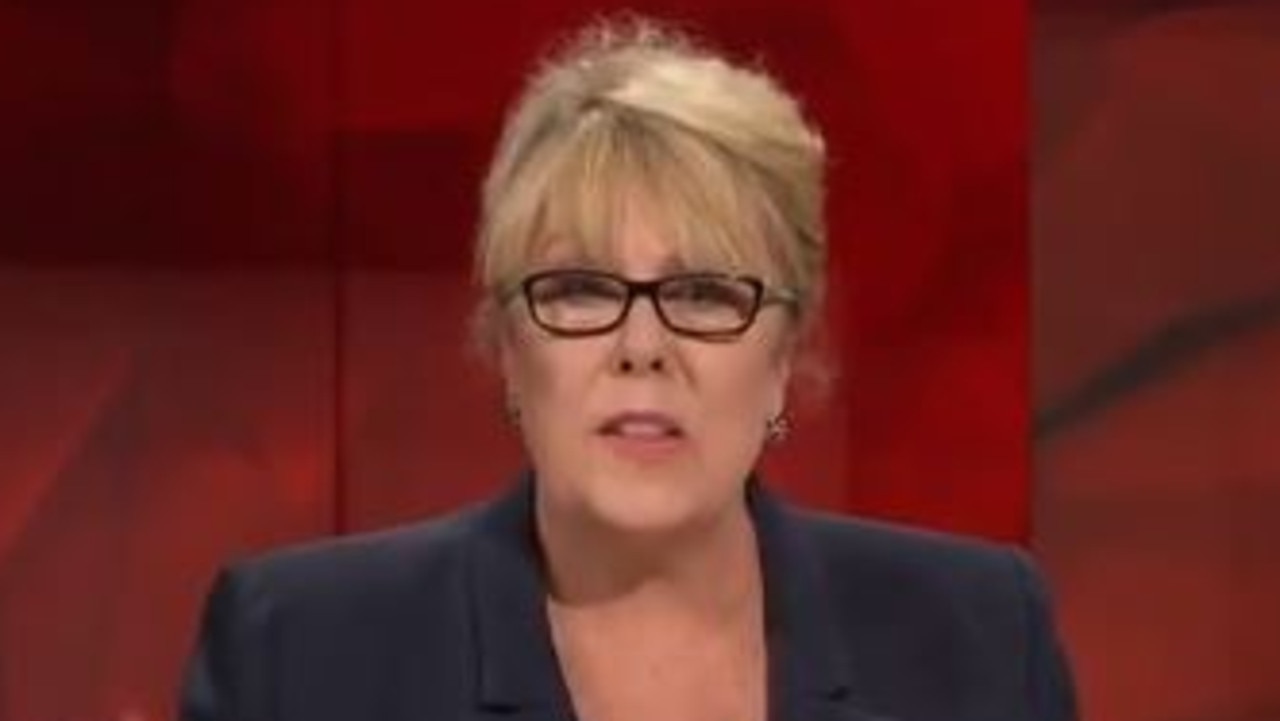Michelle Guthrie wields the axe as ABC goes back to bush
ABC boss Michelle Guthrie has proposed to axe 200 staff and sack key executives in a purge of middle management.

Michelle Guthrie, ABC managing director, vowed to make staff accountable to audiences as she proposed to axe 200 staff and sack key executives in a purge of middle management.
Unveiling proposals to axe the corporation’s labyrinthine management structures, reinvest money on-screen via a $50 million content fund and create 80 rural and regional jobs, Ms Guthrie warned staff they would be held “accountable for their successes and failures”.
Ms Guthrie is attempting to succeed where her predecessors failed in pushing through radical changes to the ABC’s bureaucratic culture as part of the most wide-ranging shake-up of the corporation for a generation.
Up to 80 staff in regional areas will be recruited within 18 months, Ms Guthrie said, as she vowed to move hard and fast on fundamentally reshaping the organisation to improve its audience reach and cater for audiences in the digital era.
“Incremental reform isn’t the answer ... if the ABC is to realise its full potential, then transformational change over the next year is essential,” Ms Guthrie told staff yesterday.
A move to slash management by 20 per cent and cut ABC divisions from 14 to eight will free up funds to allow for $15m a year to be spent on regional jobs and digital programs. The move could start unwinding devastating cuts in rural and regional Australia implemented by Ms Guthrie’s predecessor, Mark Scott, in 2014.
Regional radio stations in Wagin, Morwell, Gladstone, Port Augusta and Nowra were closed and cuts were made to Newcastle radio staff as part of 400 redundancies. A popular Bush Telegraph program was axed amid sweeping programming changes and staff cuts at Radio National and Local Radio.
Communications Minister Mitch Fifield welcomed the decision to reallocate funds to regional areas. “While the ABC board has legislated independence to make its own operational decisions, the government nevertheless welcomes the ABC’s commitment to redirect additional investment into content, especially its focus on rural and regional areas,” he said.
The ABC’s 2016 annual report reveals that more than half of the ABC’s staff, or 53.61 per cent, live in NSW. Victorian Nationals senator Bridget McKenzie urged the ABC to restore radio services. “It’s a really great first step in readdressing the appalling imbalance that the ABC has exhibited over the past decade, driven by centralisation, particularly in Sydney and cities on the eastern seaboard,” she said.
Addressing staff inside Studio 22 at the ABC’s home in Sydney’s Ultimo, Ms Guthrie pulled no punches in her analysis of what is required to take the public broadcaster into the 21st century, telling staff the organisation’s audience reach was falling behind because of significant failings. “Our reach on television and radio is declining and digital is struggling to bridge the divide. We have significant audience gaps: socially, culturally and geographically,” she said.
Combined national audience reach across TV, radio and online fell to 69 per cent, down from 71 per cent the previous year, according to the 2016 annual report.
The ABC was accused of using the restructure to mask job cuts in the television and news divisions.
“This is not a management cull as is being pitched, this is wholesale job cuts,” said Sinddy Ealy, the ABC section secretary of the public sector union CPSU. An estimated 36 people in the operations section of the television division will be made redundant, as will 49 people in news operations, the union said. The jobs include camera operators and producers.
The ABC has highlighted the “glossy content announcement, but in reality, as we speak, content-making staff on flagship ABC programs, including Foreign Correspondent and 7.30, are being told they will not have jobs by July 1,’’ Ms Ealy said.
‘‘The ABC said the cuts in the television and news divisions were efficiencies that the ABC was already undertaking due to previous budget cuts.
“It’s being pitched as a management cull but we suspect it’s pitched at the wrong level of management. The real bottlenecks in management are at a lot higher level in the structure.”
An internal memo said redeployment and existing vacancies would reduce the net losses to 26 positions. “This amounts to about 3 per cent of total news employees, with no editorial roles affected,” ABC News director Gaven Gaven Morris told staff.
ABC director of radio Michael Mason told staff he acknowledged the “level of uncertainty” in the restructure announcement.
“While we are not making any announcements today about restructuring, over the next few weeks we will undertake an intensive review of all of radio leadership roles,” Mr Mason said.
A former senior executive said the ABC’s priorities tended to be about itself as an institution. “The ABC is more concerned about how many people it employs and how much infrastructure it has,” he said.



To join the conversation, please log in. Don't have an account? Register
Join the conversation, you are commenting as Logout